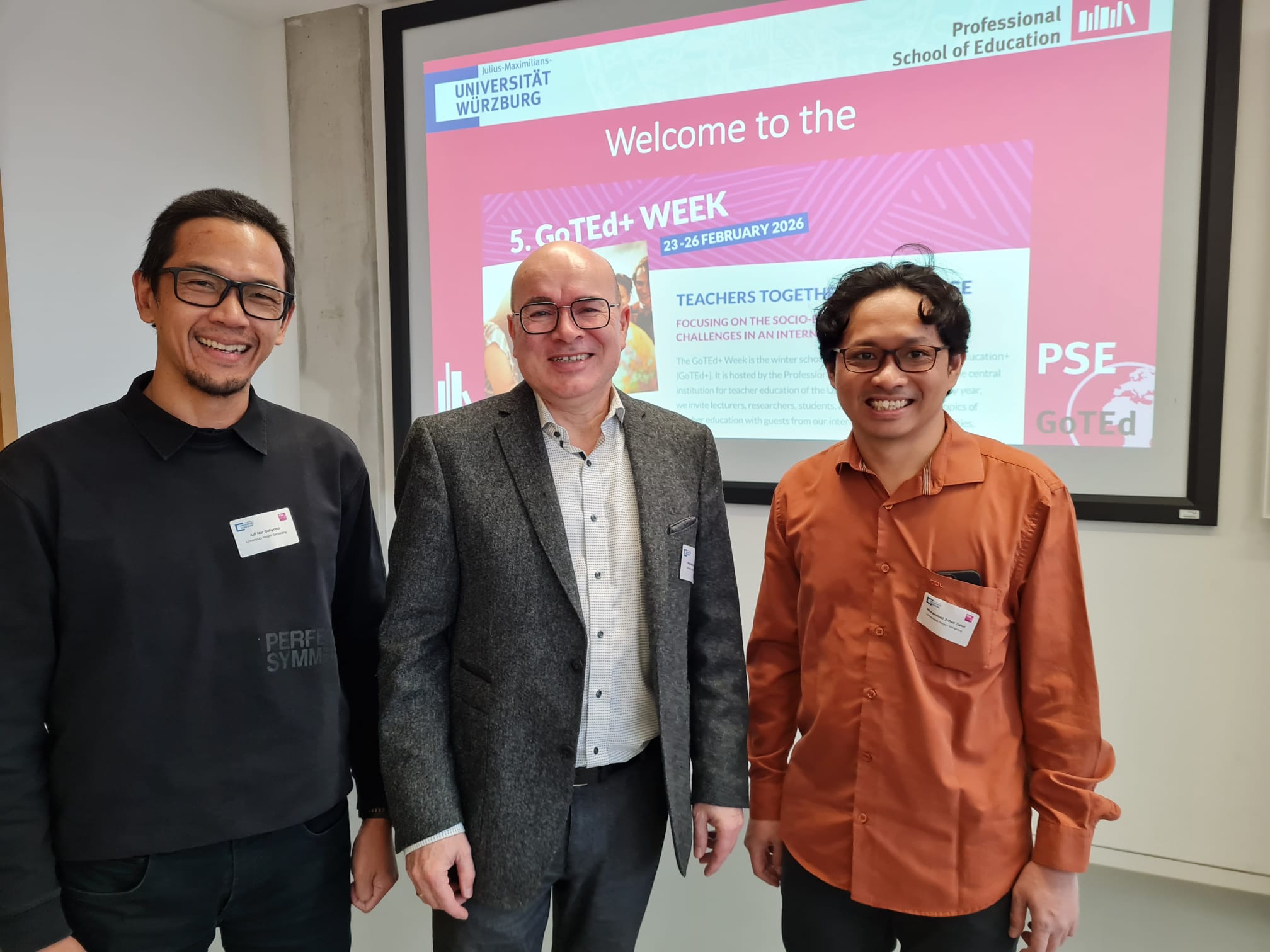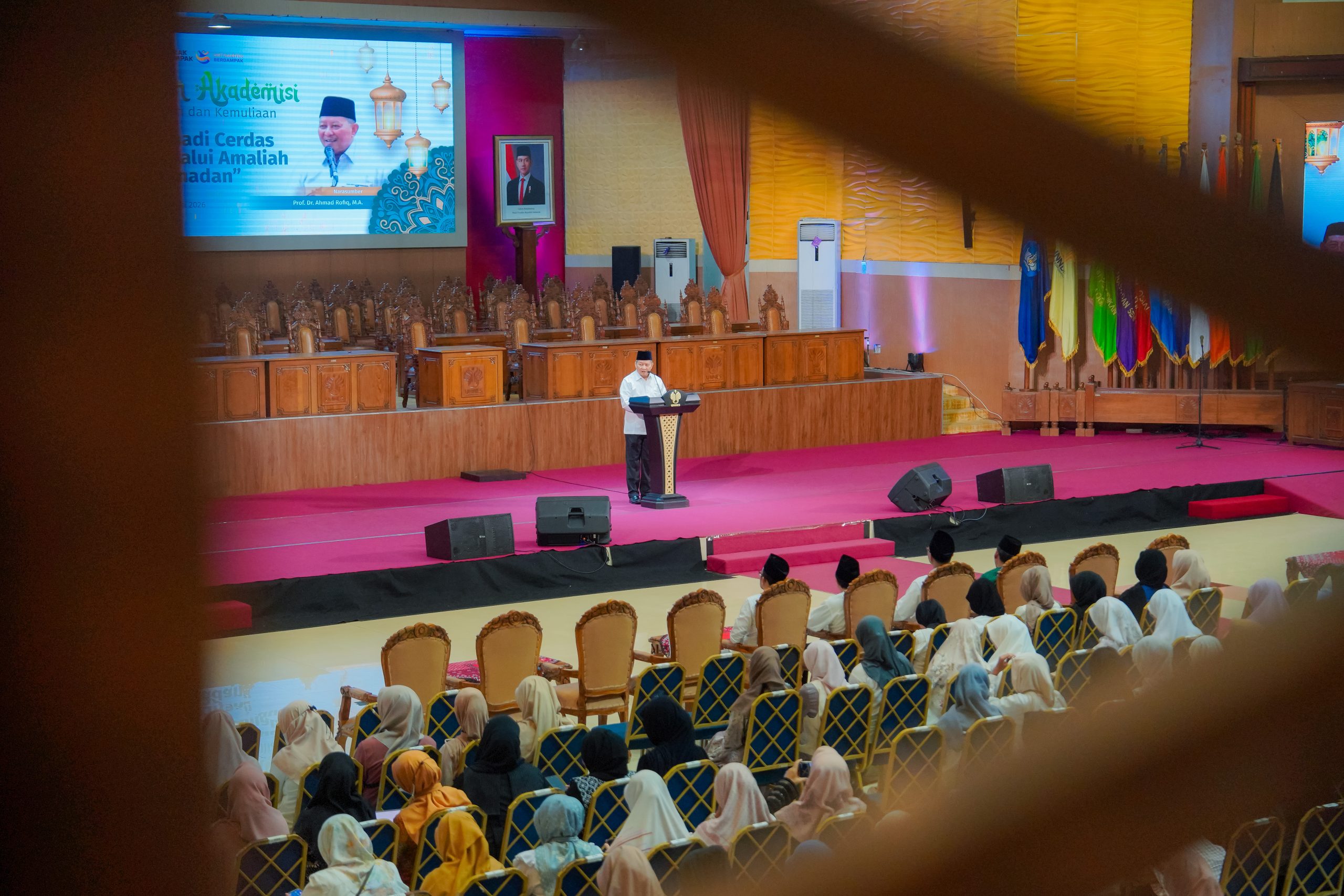Ketua Lembaga Pengembangan Pendidikan dan Profesi (LP3) Unnes Drs Bambang Budi Raharjo MSi menyelesaikan studi doktoralnya.
Pria yang akrab disapa Bambang BR ini berhasil mempertahankan disertasinya yang berjudul ”Momentum Emas Pembentukan SDM Berkualitas: Kajian Sosial Budaya Inisiasi Menyusu Dini dan ASI Eksklusif di Masyarakat Kendal Jawa Tengah” pada ujian terbuka di Program Pascasarjana Universitas Satya Wacana (UKSW) Salatiga, Rabu (4/4).
Dalam ujian terbuka itu, bertindak sebagai promotor adalah Dr rer nat Agus Ign Kristijanto MS dengan kopromotor Prof Daniel D Kameo SE MA PhD dan Prof Dr DYP Sugiharto MPd Kons. Adapun penguji dalam ujian itu ialah Dr Pamerdi Giri Wiloso MSi, Dr Ir Sri Suwartiningsih MSi, dan Prof dr H M Sulchan Sp GK.
Bambang BR dalam paparannya menyampaikan empat simpulan. Pertama, inisiasi menyusui dini (IMD) dan pemberian ASI eksklusif yang rendah mengindikasikan kegagalan bangsa dalam menyiapkan sumber daya manusia yang berkualitas.
Kedua, untuk mewujudkan SDM yang berkualitas, Indonesia belum mempunyai komitmen yang kuat untuk menjamin setiap bayi yang lahir mendapatkan hak memperoleh IMD dan ASI eksklusif.
Ketiga, arah pembangunan nasional yang mendorong industrialisasi telah mengabaikan hak bayi mendapat ASI eksklusif. Keempat, pelaku dan perencana pembangunan SDM sering lupa bahwa membangun manusia pada hakikatnya tidak bisa lepas dari budaya dimana seorang manusia mulai meretas kehidupannya.
”Untuk menyiapkan SDM yang berkualitas perlu ditumbuhkembangkan kesadaran IMD dan pemberian ASI eksklusif,” kata Bambang.
“Terdapat beberapa faktor kegagalan bayi mendapatkan ASI eksklusif, diantaranya disebabkan faktor yang ada pada diri ibu (faktor predisposisi) yang cukup berpengaruh terhadap praktik IMD maupun pemberian ASI eksklusif di daerah pantai, yaitu pendidikan, pengetahuan ibu, sikap ibu terhadap IMD dan ASI eksklusif,” lanjutnya.
“Sedangkan faktor predisposisi yang berpengaruh terhadap pemberian ASI eksklusif adalah sikap ibu terhadap pentingnya ASI bagi bayi. Saat ini industri telah memaksa para ibu yang bekerja meninggalkan banyinya tanpa ASI,” katanya.
Disertasi tentang IMD ini merupakan modal penting dalam pembangunan sumber daya manusia (SDM) di Indonesia. Hasil penelitian yang dilakukannya di Kabupaten Kendal menunjukkan cakupan IMD dan ASI eksklusif masih di bawah target nasional.




Selamat untuk pak Doktor, semoga semakin banyak ni’mat yang diberikan Yang Maha Kuasa sehingga semakin eksis; salam !
Selamat bpk Dr. Bambang Budi Raharjo, semoga sukses berikutnya selalu menyertai, amin.
Selamat mas Bambang
Selamat Pak Bambang semoga tambah sukses…
Selamat pak Dr. Bambang BR. Semoga ilmunya bermanfaat bagi nusa dan bangsa. amin yra
selamat sukses pak Bambang BR……semoga menjadi keberkahan….
selamat dan selalu sukses Pak Bambang BR, Barokallah